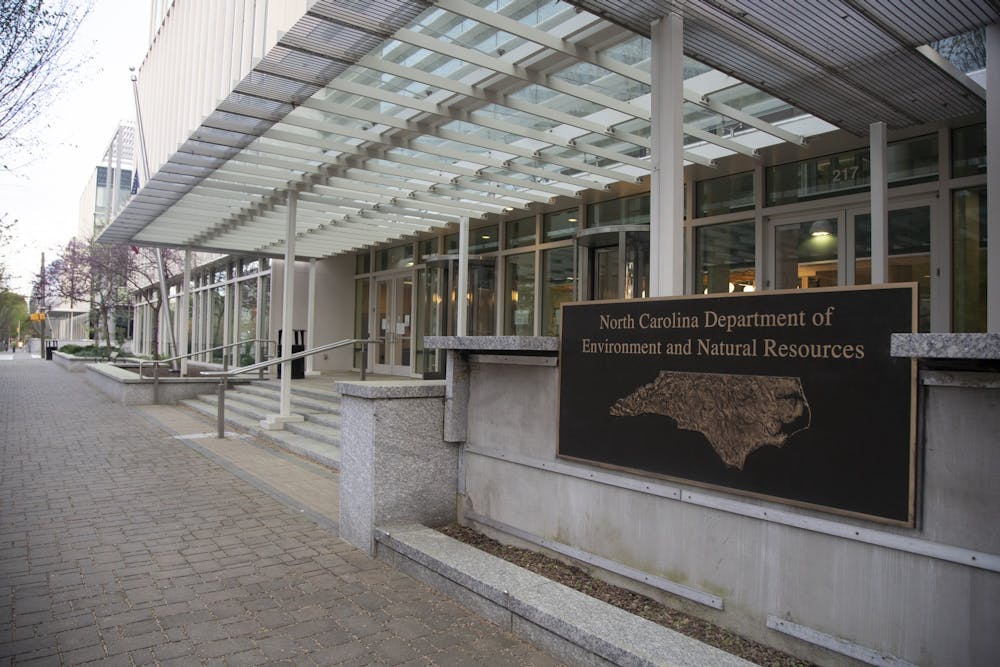Many environmental departments in the state have faced severe budget cuts over the past few years, according to a report from the Environmental Integrity Project — a nonprofit that advocates for effective enforcement of environmental laws.
The December 2019 report, called The Thin Green Line, found that the N.C. Department of Environmental Quality saw spending slashed at rates that are among the worst in the country. The Environmental Protection Agency has also lost 16 percent of its funding and staffing over the last decade, according to the report.
“I would say since about 2010, 2011 is when the cuts started happening that seemed more retaliatory or an attempt to deregulate the agency,” Lisa Sorg, an environmental reporter for N.C. Policy Watch, said.
North Carolina has seen a 34 percent decrease in funding for pollution control efforts, according to the report, dropping to $90 million in 2018 from $136 million in 2008, one of the largest cuts in the nation over the same time span. Over the same amount of time, reports said the overall state budget actually grew by 8 percent to $43 billion in 2018 from $40 billion in 2008.
Grady McCallie, policy director for the N.C. Conservation Network, said North Carolina’s spending on pollution control hasn’t kept up with inflation or state population growth.
McCallie said he believes the problem may lie in the way the state is going about hiring people. He explained that when vacant positions aren’t filled for enough time, they may be cut in order to absorb ‘management flexibility’ cuts.
“Fixing the decay in the agency isn’t just a matter of giving the agency more overall funding - it’s also a matter of lifting the overall salary ladder so that the agency can hire and retain excellent people,” he said.
North Carolina’s Wetlands Department had nine employees in 2007 but now has nobody on their staff. The Thin Green Line report states that the decreasing number of employees in the DEQ has also led to a backlog in permit applications, which prompted the state to impose a 30-to-60-day period for the DEQ to automatically approve many permit applications.
“They have fewer inspectors, fewer enforcement officers, fewer people to review and write the permits,” Sorg said. “There could be a rush and those permit applications don’t get the scrutiny they need.”




